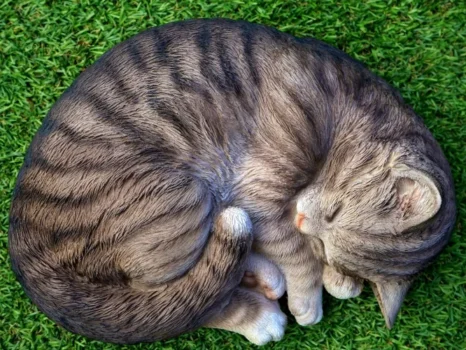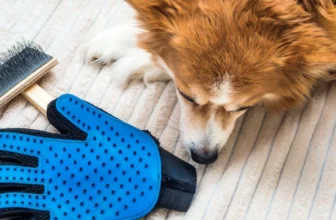As a pet owner, shedding can be a common concern when it comes to your American Shorthair cat. You want your furry companion to have a healthy, shiny coat, and excessive shedding can be a sign of poor nutrition. But what exactly is the link between shedding and diet? In this article, we’ll dive into the intricate connections between the nutrients your cat consumes and its shedding patterns. We’ll also debunk common myths about diet and shedding so you can make the best choices for your furry friend’s health. Plus, we’ll provide tips on managing shedding through diet so you can maintain a happy and healthy cat. Get ready to learn how to make the right dietary choices to help your American Shorthair shed less and have a beautiful, healthy coat.
The Link Between Shedding and Diet
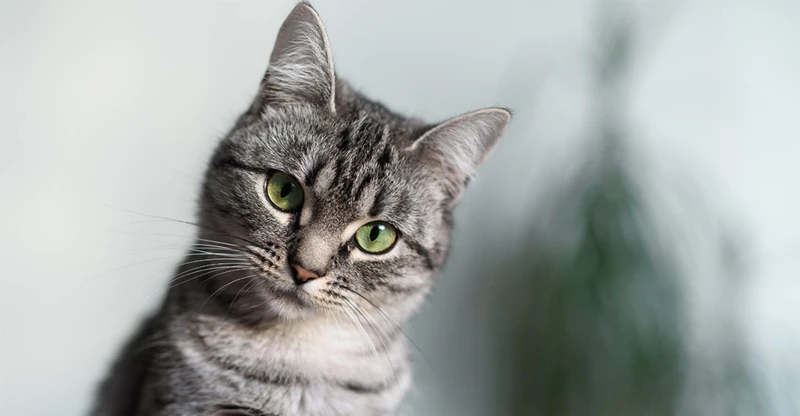
Pet owners often wonder why their American Shorthair sheds more than usual, but what they might not realize is that their feline friend’s diet could be a contributing factor. A cat’s diet plays a crucial role in their overall health and wellbeing, and this includes their skin and coat health. In this section, we’ll explore the link between shedding and diet and how the nutrients found in your cat’s food can impact shedding. Understanding this link will help you choose the right food for your American Shorthair and reduce excessive shedding. If you’re interested in reducing shedding for your furry friend, head over to our article on how to reduce shedding in American Shorthairs.
The Role of Nutrients
Nutrients play a crucial role in the overall health of American Shorthairs, including their shedding patterns. Proper nutrition provides the essential building blocks for healthy skin, which is vital for maintaining a healthy coat and reducing shedding. This section will outline some of the key nutrients that American Shorthairs need in their diet to maintain healthy shedding patterns.
| Nutrient | Role | Food Sources |
|---|---|---|
| Protein | Protein is a crucial component of healthy skin and hair. It represents the building blocks of tissue that sustain the growth and repair of skin cells. Lack of protein in an American Shorthair’s diet can result in a dull and unhealthy coat. | Meat, Fish, Poultry, Eggs, Dairy Products |
| Healthy Fats | The inclusion of healthy fats such as omega-3 and omega-6 fatty acids is essential for maintaining healthy skin and reducing inflammation. They also promote a shiny and healthy coat, preventing dry skin and dandruff in the process. | Fish, Flaxseed, Canola Oil, Soybean Oil |
| Vitamins | Vitamins A, C, and E are essential for maintaining healthy skin and reducing shedding. Vitamin A is known to promote skin cell growth, while vitamins C and E act as powerful antioxidants that reduce inflammation and promote skin health. | Sweet Potatoes, Spinach, Carrots, Fish, Seeds, Nuts |
| Minerals | Minerals such as zinc and copper play an important role in maintaining healthy skin and reducing shedding. Zinc, in particular, is essential for the production of oils in the skin that keep the coat healthy and shiny. | Poultry, Beef, Seafood, Whole Grains, Seeds |
| Water | American Shorthairs need to stay hydrated to maintain healthy skin and coat. Without enough water, the skin can become dry and flaky, leading to increased shedding and dandruff. | Make sure your cat always has access to fresh, clean water. Wet food can also help supplement your cat’s water intake. |
By ensuring that American Shorthairs are getting the proper nutrients in their diet, owners can promote healthy shedding patterns in their cats. For more information on managing shedding in American Shorthairs, check out our article on Shorthair Shedding Remedies. You can also browse our guide to the Best Grooming Tools for American Shorthairs Shedding or learn about Stress and Shedding in Shorthairs.
Choosing the Right Food
When it comes to choosing the right food for your American Shorthair, it’s essential to consider their unique nutritional needs. A diet that lacks essential nutrients can lead to shedding and an unhealthy coat. It’s vital to choose high-quality cat food that supports their overall health and wellbeing.
Here are some tips for choosing the right food:
- Read the Label: Always check the ingredient list before purchasing the food. Look for high-quality protein sources such as chicken, fish, and turkey. Avoid foods that contain fillers, by-products, or artificial preservatives.
- Consider Your Cat’s Age: Different life stages require different nutrient ratios, so it’s crucial to choose a food that is appropriate for your cat’s age.
- Choose a Balanced Diet: Select a food that provides a complete and balanced diet for your American Shorthair. A balanced diet contains all the essential nutrients, including protein, carbohydrates, healthy fats, vitamins, and minerals.
- Consult with Your Veterinarian: If you’re unsure about what type of food is best for your American Shorthair, consult your veterinarian for advice.
By choosing the right food for your American Shorthair, you can help reduce shedding and maintain their overall health. However, a balanced diet alone may not be enough to control shedding, and it’s essential to consider other factors such as Grooming (/hairball-prevention-grooming-shorthairs/) and other Shedding Remedies (/shorthair-shedding-remedies/) as well.
The Effects of Poor Nutrition on Shedding
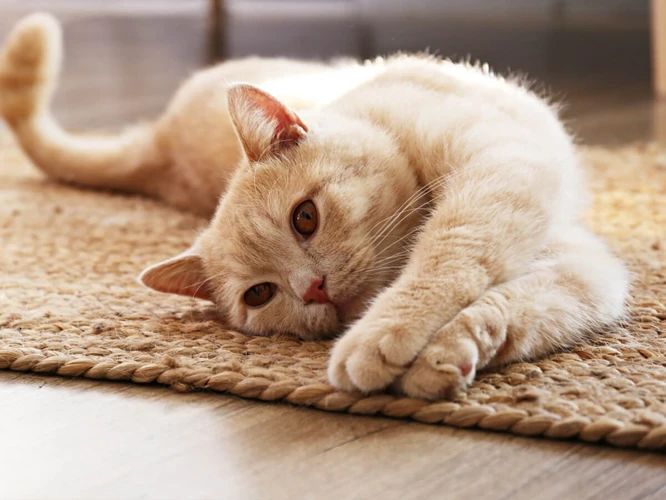
Your cat’s diet plays a crucial role in their overall health, which includes the quality of their coat and shedding behavior. Unfortunately, poor nutrition can lead to a range of issues that can exacerbate shedding and lead to a dull coat that lacks luster and shine. In fact, studies show that a lack of essential nutrients can cause significant changes in a cat’s skin and coat. It’s vital to become familiar with the effects of poor nutrition on shedding and take steps to prevent potential health issues that can arise from a lack of proper nourishment.
Increased Shedding
When a cat’s diet lacks the proper balance of nutrients, it can lead to a variety of issues. One of the most noticeable effects of poor nutrition is increased shedding. Below are some reasons why a cat could experience a surge in shedding due to an unbalanced diet:
- Low-Quality Protein: Cats are obligate carnivores, which means that they need high-quality animal protein to thrive. If their food contains too little protein or the protein is of poor quality, their coat may become dull and they could start to shed more than usual.
- Nutrient Deficiencies: Incomplete and imbalanced diets can cause nutrient deficiencies that can impact your cat’s coat. For example, a lack of B vitamins can make the coat look dull and slow growth, while low levels of essential fatty acids can affect coat density, leading to increased shedding.
- Dehydration: Cats need plenty of water to maintain healthy skin and a lustrous, soft coat. If they don’t drink enough water or eat wet food, their coat could become dry and brittle, and you may notice more shedding than usual.
It’s important to note that some shedding is normal, but excessive shedding could signal an underlying health issue. If you’ve ruled out other causes such as stress or illness, it’s worth taking a closer look at your cat’s diet and making sure they’re getting the right nutrients in the right amounts.
Dull and Brittle Coat
A poor diet can lead to a dull and brittle coat in American Shorthairs. When a cat’s diet is lacking in essential nutrients, their coat may lose its shine and become dry and brittle. This is because the coat is made up of proteins, and a lack of protein in the diet can lead to weaker, less healthy hair. A diet lacking in healthy fats can lead to a lack of moisture in the coat, causing it to appear dull and lifeless.
To prevent a dull and brittle coat, it’s important to choose a high-quality diet that is rich in protein and healthy fats. Protein is the building block of hair, and a high-protein diet can help promote a healthy and shiny coat. Healthy fats, such as those found in fish oils, can help keep the coat moisturized and prevent dryness and brittleness.
If a cat’s coat is already dull and brittle due to poor nutrition, it may take some time for improvements to become visible. However, with proper nutrition, over time the coat should become shinier and more hydrated. It’s important to be patient and consistent with a healthy diet to see the best results.
The Benefits of a Balanced Diet on Shedding
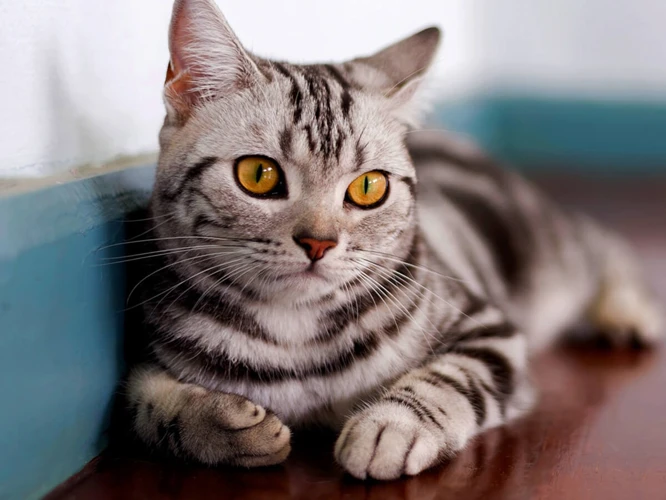
Ensuring that your American Shorthair is consuming a healthy and balanced diet can have numerous benefits on their shedding patterns. A diet that is rich in essential nutrients, proteins, and healthy fats is not only crucial for maintaining your feline’s overall health, but it can also lead to a decrease in excessive shedding. In this section, we’ll explore the ways in which a balanced diet can help to keep your cat’s coat healthy and shiny, and reduce shedding.
Healthy and Shiny Coat
Having a healthy and shiny coat is what all American Shorthair owners aspire to achieve for their feline friends. One effective way to achieve this is by feeding them a balanced diet that contains all the necessary nutrients. Here are some nutrients that can help in achieving a healthy and shiny coat:
- Protein: A diet that is high in protein content can help promote the growth of healthy hair follicles. It is important to choose cat food that contains high-quality protein sources such as chicken, fish, and eggs.
- Healthy Fats: Omega-3 and Omega-6 fatty acids are essential for maintaining healthy skin and coat. These healthy fats can be found in fish oil, flaxseed oil, and chicken fat.
- Essential Nutrients: Vitamin A, Vitamin E, and biotin are essential for maintaining healthy skin and coat. These nutrients can be found in fruits, vegetables, and certain types of meat.
- Water: Adequate water intake is crucial for maintaining a healthy coat. It is important to ensure that your American Shorthair has access to clean drinking water at all times.
Feeding your American Shorthair a balanced diet that is rich in these nutrients can help promote healthy hair growth resulting in a shiny and luscious coat. Along with a balanced diet, regularly grooming your cat can also help in maintaining a healthy and shiny coat.
Lower Shedding
A balanced diet can significantly lower shedding in American Shorthairs. When a cat is getting the right nutrients, their coat becomes healthy and shiny, and they shed less. Let’s look at some specific nutrients that can help reduce shedding in cats.
| Nutrient | Role | Food Sources |
|---|---|---|
| Protein | Protein is essential for healthy hair growth. It provides the building blocks for hair and helps to prevent shedding. | Meat, fish, poultry, eggs, and dairy |
| Healthy Fats | Healthy fats, such as omega-3 fatty acids, are important for maintaining a healthy coat. They help to keep skin moisturized and reduce shedding. | Fatty fish (salmon, tuna, sardines), flaxseed, and chia seeds |
| Essential Nutrients | Essential nutrients, such as vitamins and minerals, are crucial for overall health and can help to reduce shedding. | Dark leafy greens, sweet potatoes, blueberries, eggs, and liver |
| Water | Water is essential for keeping a cat hydrated and maintaining healthy skin and fur. | Water should be readily available at all times and wet food can provide additional hydration. |
As you can see, it’s important to provide your American Shorthair with a diet that is high in protein, healthy fats, essential nutrients, and plenty of water. By doing so, you can reduce shedding and help your cat maintain a healthy and shiny coat.
What to Look for in a Diet for American Shorthairs
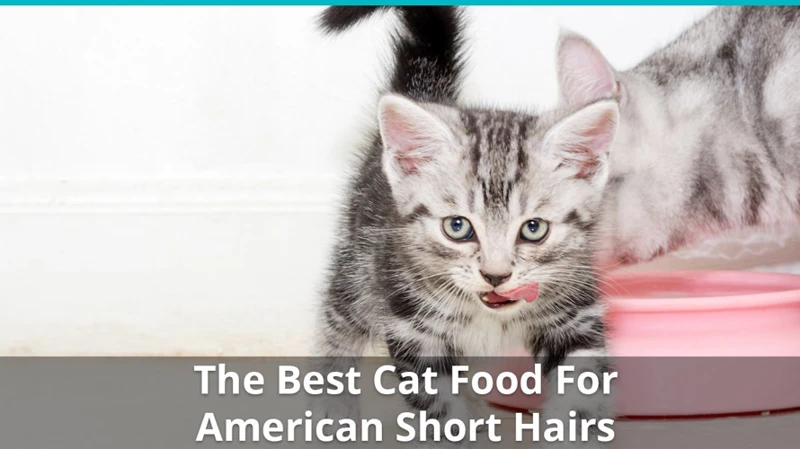
When it comes to choosing the right diet for your American Shorthair, it can be overwhelming to navigate through all the options available. However, by understanding what key components to look for in their food, you can ensure that your furry friend is receiving the proper nutrition they need for optimal health. From protein sources to essential nutrients, let’s explore the important factors to keep in mind when selecting a diet for your American Shorthair.
Protein
A high-protein diet is essential for American Shorthairs to maintain a healthy coat and minimize shedding. Protein is made up of amino acids, which are the building blocks of the body’s tissues. Without enough protein, a cat may develop a dull coat and experience excessive shedding.
Some of the best sources of protein for cats include:
| Protein Source | Protein Content (%) |
|---|---|
| Chicken | 30 |
| Turkey | 30 |
| Beef | 26 |
| Lamb | 25 |
| Fish (salmon, tuna, etc.) | 20-25 |
It is important to note that not all protein sources are created equal. Animal-based proteins are more beneficial for cats than plant-based proteins. When selecting cat food, it is best to look for options that have real meat listed as the first ingredient.
In addition to choosing high-quality protein sources, it is also important to consider the quantity of protein in your cat’s diet. Overfeeding protein can lead to obesity, which can negatively impact your cat’s overall health and coat condition. It is recommended to consult with your veterinarian to determine how much protein your American Shorthair needs based on their age, weight, and activity level.
A balanced diet with an adequate amount of high-quality protein is essential for minimizing shedding and maintaining a healthy coat in American Shorthairs.
Healthy Fats
Including healthy fats in an American Shorthair’s diet can have a significant impact on their shedding. It is essential to choose the right types of fats to promote a healthy coat and skin. Here are some examples of healthy fats to include in your cat’s diet:
- Salmon oil: Rich in omega-3 fatty acids, salmon oil helps reduce inflammation and promotes a healthy coat. It also supports the immune system and helps prevent allergies.
- Flaxseed oil: Another source of omega-3 fatty acids, flaxseed oil provides nourishment for the skin and coat, reducing dandruff and improving overall coat shine.
- Chicken-fat: A source of both omega-3 and omega-6 fatty acids, chicken-fat promotes healthy skin and helps prevent shedding caused by skin inflammation.
- Coconut oil: Rich in lauric acid and medium-chain triglycerides (MCTs), coconut oil boosts immune function and promotes skin health. It also has antibacterial and antifungal properties, helping prevent infections that can lead to excessive shedding.
Remember that while healthy fats are important for promoting a healthy coat and reducing shedding, it is essential to balance fats with the proper amounts of protein and other essential nutrients. Consulting with a veterinarian can help determine the right balance of nutrients for your American Shorthair’s individual needs.
Essential Nutrients
When it comes to choosing the right diet for your American Shorthair, it’s important to consider the essential nutrients that are needed for proper shedding management. These nutrients are vital to maintaining a healthy coat and keeping shedding under control. Here are some of the key nutrients to look for in your cat’s diet:
| Nutrient | Function | Sources |
|---|---|---|
| Protein | Supports hair growth and repair | Meat, poultry, fish, eggs, and dairy |
| Omega-3 Fatty Acids | Reduces inflammation and promotes healthy skin | Fish oil, flaxseed, and chia seeds |
| Vitamin E | Prevents oxidative damage to skin and hair | Almonds, avocado, sweet potatoes, and spinach |
| Zinc | Supports immune function and encourages hair growth | Oysters, red meat, poultry, and beans |
| Vitamin A | Regulates skin cell production and promotes a healthy coat | Liver, carrots, sweet potatoes, and pumpkin |
| Biotin | Promotes healthy skin and hair growth | Egg yolks, liver, and salmon |
A diet that is rich in these essential nutrients can go a long way in managing shedding in your American Shorthair. Be sure to choose a high-quality cat food brand that contains these nutrients in appropriate quantities. Consulting with your veterinarian can also help you determine the best diet for your cat, as they can provide personalized recommendations based on your cat’s specific needs.
Water
Water is an essential nutrient for American Shorthairs (ASH), just as it is for any other living creature. It plays a crucial role in maintaining the health of your ASH’s coat and skin. Dehydration can lead to dry, brittle hair that is more prone to shedding. Lack of water can cause flaky skin and dandruff, which can be unsightly and uncomfortable for your pet.
To ensure that your ASH gets enough water, make sure that you always have a fresh supply of water available for them. Water intake can come from their food as well. Wet food typically contains more water content than dry food, and you can also add water to dry food to increase moisture. This can also be beneficial for ASHs who are prone to urinary problems.
It’s important to note that not all water is created equal. Filtered water is ideal, as it removes any harmful chemicals, heavy metals or substances that can be harmful to your pet. If you notice that your ASH is avoiding their water bowl, try offering water from a different source or consider using a pet water fountain. The sound and motion of water in a fountain can be particularly enticing for cats.
In general, providing your ASH with a balanced diet rich in wet food, or supplemented with water, can help maintain their hydration levels and promote healthier skin and coat. Remember that access to clean, fresh water is essential for your pet’s overall health and wellness.
Common Myths About Diet and Shedding
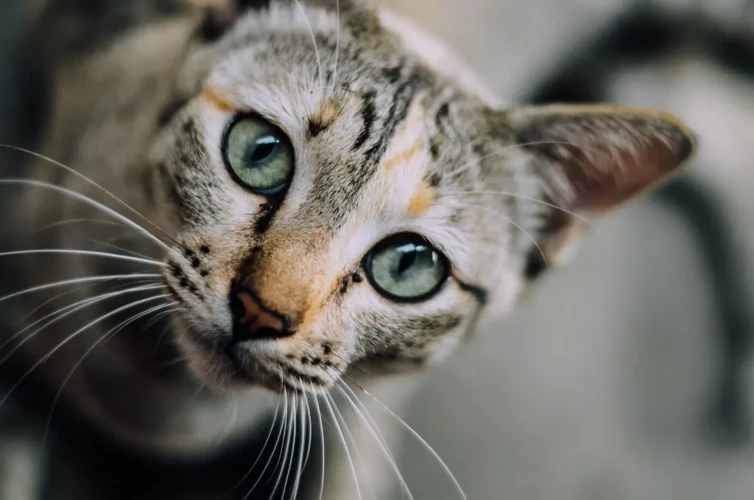
As pet owners, we often hear various tips and tricks about how to manage our cat’s shedding and prevent any excessive hair around our homes. Some of these tips are passed down from generation to generation, while others are spread on the internet by well-meaning but misinformed individuals. However, it’s essential to separate fact from fiction when it comes to understanding how diet affects shedding, and which myths are just that – myths! Let’s debunk some of the most common myths surrounding diet and shedding in American Shorthairs.
Myth: Grain-Free Diets Stop Shedding
There is a popular myth that feeding American Shorthairs a grain-free diet will completely stop shedding. However, this is not necessarily true. While grain-free diets may have certain benefits for some cats, they do not have a direct impact on shedding. In fact, many high-quality cat foods that contain grains can still effectively manage shedding.
One possible reason for this myth is that grain-free cat foods often have higher levels of protein and fat, which can improve coat health. However, it’s important to note that a cat’s coat health is not solely determined by their diet. Other factors, such as genetics and grooming habits, also play a significant role.
To put this myth to the test, several studies have been conducted on the link between grain-free diets and shedding in cats. One such study found that there was no significant difference in shedding between cats fed a grain-free diet and those fed a standard diet containing grains. This suggests that the absence of grains alone is not a determining factor in reducing shedding.
It’s important to note that while a grain-free diet may not necessarily stop shedding, it can still have other benefits for some cats. For example, cats with food allergies or sensitivities may benefit from a grain-free diet, as grains are a common allergen. Additionally, some cats may have trouble digesting grains, leading to digestive issues and discomfort.
Ultimately, when choosing a diet for your American Shorthair, it’s important to consider your cat’s individual needs and preferences. This may involve trying different diets to find the one that works best for your cat. Remember to always consult with your veterinarian before making any major changes to your cat’s diet.
| Myth: | Grain-free diets will stop shedding in American Shorthairs. |
|---|---|
| Fact: | Grain-free diets may have certain benefits for cats, but they do not have a direct impact on shedding. |
| Studies: | Research has shown that there is no significant difference in shedding between cats fed a grain-free diet and those fed a standard diet containing grains. |
| Considerations: | When choosing a diet for your cat, consider their individual needs and preferences, and always consult with your veterinarian. |
Myth: Homemade Diets are Always Better
There is a common belief among some pet owners that homemade diets are always the better option when it comes to feeding their American Shorthair cat. However, this is actually a myth that can be harmful to your cat’s health.
Here are some reasons why:
- Inadequate nutrition: Making sure your homemade diet provides a balanced amount of protein, fat, vitamins, and minerals can be difficult. If not done correctly, your cat could end up with nutrient deficiencies or excesses that can lead to serious health problems.
- Risk of contamination: If you are not careful, homemade diets can be contaminated with bacteria, toxins, or other harmful substances. This is especially true if you use raw meat as a protein source, which can contain harmful bacteria such as salmonella or E. coli.
- Difficulty in preparation: Preparing a homemade diet that meets all your cat’s nutritional needs can be time-consuming and expensive. It can also be difficult to ensure that your cat is eating a balanced diet when you have to weigh and measure every single ingredient.
- Cost: Contrary to popular belief, homemade diets are not always cheaper than commercial diets. In fact, they can be more expensive due to the cost of high-quality ingredients and the time it takes to prepare them.
- Lack of research: Commercial diets have been extensively researched to ensure they meet all of a cat’s nutritional needs. Homemade diets, on the other hand, have not been studied as thoroughly, so it’s difficult to know for sure whether they provide the right balance of nutrients.
While homemade diets may seem like a good idea in theory, they can be difficult to prepare, costly, and potentially harmful to your American Shorthair cat’s health. It’s best to stick to high-quality commercial diets that have been formulated to meet all of your cat’s nutritional needs.
Myth: Dry Food Prevents Shedding
Contrary to popular belief, dry food does not prevent shedding in American Shorthairs or any other breed of cat. While dry food may have some benefits, such as helping with dental health, it does not have any direct impact on shedding.
Many people believe that feeding their cat dry food will prevent shedding because it helps to control the amount of hair that the cat ingests. The idea is that because dry food is not as messy as wet food, the cat will ingest less hair during grooming and therefore shed less. However, this is not entirely true.
In fact, some research has suggested that dry food may actually increase shedding. This is because many dry foods contain a high percentage of carbohydrates, which can cause inflammation and unhealthy levels of shedding. Carbohydrates can also lead to obesity, which can exacerbate shedding.
It is true that a high-quality dry food can be a part of a healthy diet for American Shorthairs. However, it is important to choose a dry food that is specifically formulated for cats and contains high levels of protein, healthy fats, and essential nutrients.
Moreover, it is important to remember that a balanced and varied diet is key to maintaining healthy skin and coat in cats, which directly affects shedding. This means that even if you choose to feed your American Shorthair dry food, you should supplement their diet with wet food, fresh fruits and vegetables, and other sources of protein and healthy fats.
In the table below, we summarize the main arguments for and against the myth that dry food prevents shedding:
| Arguments for the Myth | Arguments Against the Myth |
|---|---|
| Dry food can help control the amount of hair a cat ingests during grooming. | Dry food can actually increase shedding due to high levels of carbohydrates and inflammation. |
| Dry food can contribute to dental health. | A balanced and varied diet is key to healthy skin and coat, which directly affects shedding. |
| Choosing a high-quality dry food is important if it is a part of your cat’s diet. |
In conclusion, while dry food can be a healthy part of a cat’s diet, it is important to choose a high-quality dry food that is specifically formulated for cats and to supplement your cat’s diet with other sources of protein, healthy fats, and essential nutrients in order to maintain healthy skin and coat and prevent excessive shedding.
Managing Shedding Through Diet
As a pet parent, you may be wondering how to reduce shedding in your American Shorthair. Fortunately, managing shedding through diet is one of the simplest ways to help your cat achieve a healthy and shiny coat. It can be perplexing to figure out the best diet for your furry friend, but with a few tips and tricks, you can significantly reduce shedding. In this section, we will explore how you can manage shedding through diet and keep your American Shorthair looking and feeling their best.
Introducing New Foods Gradually
When introducing new foods into an American Shorthair’s diet, it is important to do so gradually to avoid any digestive upset or allergic reactions. The best way to do this is to follow a 7-day plan of mixing old and new foods together. Here is an example of how to introduce new foods gradually:
- Day 1-2: Mix 75% of your cat’s old food with 25% of the new food. Observe your cat and make sure they eat all of the food.
- Day 3-4: Mix 50% of the old food with 50% of the new food.
- Day 5-6: Mix 25% of the old food with 75% of the new food.
- Day 7: Your cat should now be eating 100% of the new food.
It is important to observe your cat closely during this introduction period to make sure they are reacting well to the new food. Watch for any signs of diarrhea, vomiting, or loss of appetite. If your cat is not responding well to the new food, go back a step and continue with that mixture for a few more days before progressing to the next step.
By introducing new foods gradually, you can help your American Shorthair adjust to their new diet without any negative side effects. This can also make it easier for you to manage shedding through diet, as you can experiment with different types of foods and see how your cat’s shedding is affected over time.
Choosing the Right Amount of Food
One important factor in managing shedding through diet is choosing the right amount of food for your American Shorthair. Overfeeding can lead to weight gain, which can in turn affect the health of their skin and coat. On the other hand, underfeeding can result in nutrient deficiencies that can also negatively impact their coat.
Factors to Consider
When determining how much to feed your American Shorthair, there are several factors to take into consideration, including their age, weight, activity level, and body condition score. The body condition score is a way to assess whether your cat is underweight, overweight, or at an ideal weight.
The Recommended Amount
As a general rule, adult American Shorthairs should be fed 3-4 small meals a day, with each meal consisting of about ¼ to ⅓ cup of food. However, this can vary depending on their specific needs. For example, an older or less active cat may need fewer calories, while a younger or more active cat may require more.
Portion Control
One way to ensure you are feeding your American Shorthair the right amount is through portion control. Measuring out their food with a kitchen scale or a measuring cup can help ensure they are getting the correct portion size. It is also important to keep in mind that treats should be given only in moderation, as they can contribute to weight gain.
Consulting with a Veterinarian
If you are unsure about how much to feed your American Shorthair or are having difficulty managing their shedding through diet, it is always a good idea to consult with a veterinarian. They can help provide guidance on portion sizes and recommend any necessary dietary adjustments based on your cat’s individual needs and health status.
To summarize, selecting the appropriate amount of food for your American Shorthair is crucial in managing shedding through their diet. Take into account their age, weight, activity level, and body condition score. Portion control is essential and consulting with a veterinarian can be beneficial in establishing a balanced diet.
Supplementing with Omega-3 Fatty Acids
Omega-3 fatty acids are essential nutrients that can greatly benefit American Shorthairs and reduce shedding. These fatty acids can be found in various supplements and foods and help promote healthy skin and coat. If your cat is not getting enough Omega-3 fatty acids through their diet, supplementing can be an excellent option.
Benefits of Omega-3 Fatty Acids:
- Reduced shedding: Omega-3s can help decrease shedding and promote a healthier coat.
- Reduced inflammation: Omega-3s can help reduce inflammation and skin irritation that can cause itching and excessive shedding.
- Improved skin health: Omega-3s support healthy skin cell production and can promote a soft, supple coat.
It’s important to ensure you supplement with the correct dosage of Omega-3 fatty acids. The recommended dosage is approximately 20-55mg per pound of body weight, depending on the individual cat’s needs. It’s important not to over-supplement as this can lead to other health problems.
When choosing an Omega-3 supplement, look for high-quality options that use pure sources of fish oil. Avoid supplements that contain fillers and additives that can cause digestive issues.
Incorporating Omega-3 fatty acids into your American Shorthair’s diet can be an excellent way to manage shedding and promote healthy skin and coat. Be sure to consult with your veterinarian before introducing any new supplements or dietary changes to your cat’s routine.
Conclusion
In conclusion, the diet of an American Shorthair has a significant impact on shedding and the overall health of their coat. It is important to choose a diet that is balanced and provides essential nutrients, including protein and healthy fats. Water is also an important factor to consider, as dehydration can lead to poor coat health and increased shedding.
While there are common myths surrounding diet and shedding, such as the idea that grain-free diets will stop shedding or that homemade diets are always better, it is important to do thorough research and consult with a veterinarian before making any changes to your cat’s diet.
Managing shedding through diet requires introducing new foods gradually to avoid stomach upset, choosing the right amount of food for your cat’s individual needs, and considering supplementation with omega-3 fatty acids to promote a healthy coat.
By prioritizing your American Shorthair’s diet and providing them with the nutrients they need, you can help reduce shedding and keep their coat shiny and healthy. Remember to always consult with a veterinarian before making any changes to your pet’s diet.
Frequently Asked Questions
What is the primary cause of shedding in American Shorthairs?
The primary cause of shedding in American Shorthairs, as well as in other cat breeds, is their natural hair growth cycle.
Can diet really affect shedding in cats?
Yes, diet plays a significant role in shedding. Feeding your cat a balanced and nutritious diet can help to reduce shedding and improve the quality of their coat.
What nutrients are important for managing shedding in American Shorthairs?
Protein, healthy fats, essential vitamins and minerals, and antioxidants are the nutrients that are essential for managing shedding in American Shorthairs.
How does protein help in managing shedding?
Protein helps to provide the necessary amino acids for healthy hair growth and maintenance, resulting in a healthy and shiny coat with minimal shedding.
What is the right amount of food to feed an American Shorthair?
The right amount of food to feed your American Shorthair will depend on their age, weight, and activity level. It’s recommended to follow the feeding guidelines on the cat food package or consult with a veterinarian.
Are grain-free diets effective in reducing shedding?
Contrary to popular belief, grain-free diets are not necessarily effective in reducing shedding. What matters most is the quality and balance of the nutrients in the food.
Can I prevent shedding altogether with the right diet?
No, shedding is a natural and necessary process for cats. However, providing your American Shorthair with a balanced and nutritious diet can help to manage shedding and improve their overall health.
Is it okay to switch my cat’s food abruptly?
No, it’s not recommended to switch your cat’s food abruptly. Gradual transition over the course of a week or so can help to prevent digestive upset and other issues.
What are some signs of poor nutrition in cats?
Dull coat, excessive shedding, lethargy, loss of appetite, digestive issues, and behavioral problems are some of the signs of poor nutrition in cats.
Are homemade diets always better for cats?
No, homemade diets are not always better for cats. It’s crucial to ensure that the diet is balanced and meets the nutritional requirements of your American Shorthair. Consulting with a veterinary nutritionist is recommended.

